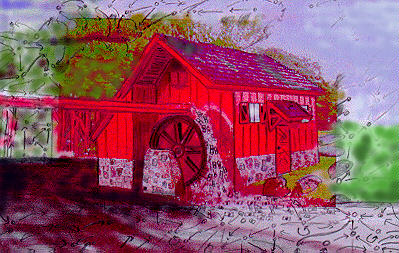Nobody took the podium right away. Nobody did anything right away. You could almost hear the collective breathing in the room quicken as the ramifications of Weld’s argument hit home. Weld had delivered his message with very few pauses, speaking quickly and succinctly. Much of what he said was only now sinking in. Many in the room had come out of bureaucratic necessity and had not been terribly interested initially. Now these same people were itching to pursue the case with new fervor. Suddenly the FBI profile seemed short-sighted, and Weld’s scenario did not seem far-fetched at all.
I glanced at Lisa, who had turned to speak to Jonny. Jonny was dumb-struck. After working on this case for weeks, it was not until this moment that he realized the nearly boundless importance of the case. I too had been sobered by Weld’s comments. The fate of the entire world economy hung in the balance! I felt a dizziness wash over me. Moments earlier I had been pleased that people were no longer under-estimating the gravity of the situation; now I realized that I myself had under-estimated!
Ours is a society that takes for granted the comfort of a strong and reliable banking infra-structure. Runs on banks are a thing of the past, to be studied by children in history class. Individual investors are protected by the FDIC and scarcely pause to think about such matters. When we put our money in a bank, the only risk we even consider is the financial risk associated with the opportunity cost for that fixed-income investment vs. other investments. Yet the FDIC cannot save all of us if the banking infra-structure collapses. Who will save the FDIC?
Every day trillions of dollars pulse through wires and over air-waves. Hundreds of thousands of transactions are carried out electronically each day. The routing of pennies through the network is no less intricate than drops of water in a river system. The ACH, CHIPS, Fedwire, and other clearing houses form the main arteries in a world-wide network of rivers, dikes, reservoirs, brooks, and streams.
For some length of time — nobody is sure how long — money has been leaking out of the waterways. New feeder streams have opened. These streams form the millrace. Every day the millrace directs vast quantities of water over the wheels. More money pours into these accounts. The wheels turn faster. Interest payments are made. Money is lost. Stolen. Nobody notices. The mill runs unabated. Continuously. Money is siphoned off, yet the overall volume of water in the system remains unchanged. The siphoned money is paid in the form of increased interest payments ground out by the rapidly spinning water wheel. Account balances are preserved. One successful mill builds confidence. Two mills build wealth. Three builds an empire. More mills destroy the world economy.
Without any way to detect the money mills, nevermind prevent them, we cannot even be sure how many are already running. If one millwright discovered the flaw and learned how to exploit it, why not two? Or two hundred? How close are we to a catastrophe? Is our wholesale banking system already a sieve? How can we know?
